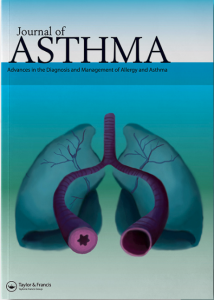
Li X, Shang J, Liu J, Zhu Y. J Asthma. 2024 Apr 30:1-11. doi: 10.1080/02770903.2024.2349604.
Abstract
Background: This meta-analysis aimed to evaluate the effectiveness and adverse effects of specific immunotherapy (SIT) in the management of respiratory allergens, including allergic asthma, rhinitis, and related disorders, based on a review of current literature up to November 8, 2022.
Methods: We conducted a search of databases, including PubMed, Embase, Cochrane, and Web of Science, to identify relevant randomized controlled trials (RCTs) assessing respiratory allergy-specific immunotherapy. We employed the Consolidated Standards of Reporting Trials (CONSORT) Statement to select RCTs that adhered to rigorous reporting standards. Specifically, we focused on double-blind placebo-controlled (DBPC) trials and open studies involving both adults and children, considering factors such as dosage, inclusion criteria, allergens, and primary outcome measurements.

Results: A total of 25 meta-analyses were included in this study. Among them, 14 evaluated sublingual specific allergen immunotherapy (SLIT), 4 assessed subcutaneous allergen immunotherapy (SCIT), 4 explored both sublingual and subcutaneous immunotherapy, and 3 investigated intralymphatic immunotherapy. The outcomes of these meta-analyses indicated a reduction in medication scores in 20 cases and a decrease in symptom scores in 23 cases. Additionally, six studies reported on changes in IgE levels, seven studies focused on IgG4, four studies examined FEV1 (forced expiratory volume in one second), and eight studies reported on symptom and medication scores. Furthermore, eleven studies reported on differences in adverse reactions.
Conclusion: The results of our meta-analysis suggest that specific immunotherapy, while associated with some adverse effects, effectively reduces the symptoms of asthma and rhinitis. Therefore, we recommend its use in the treatment of respiratory allergies.
